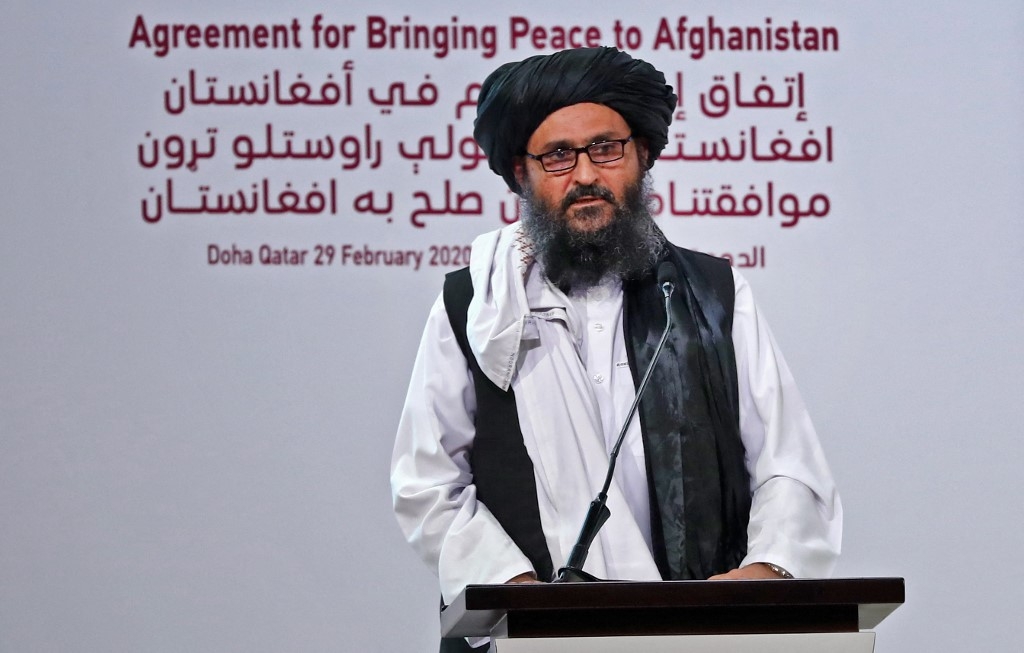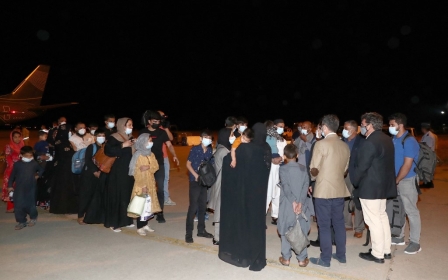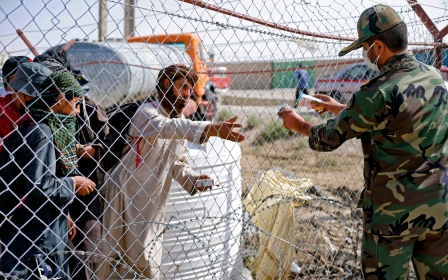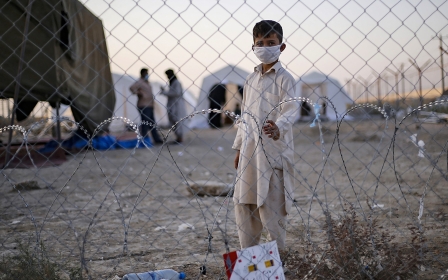Arabic press review: Taliban says it's ready to normalise relations with 'invaders'

Taliban ready to normalise relations with all countries
The Taliban is ready to normalise relations with all countries, including nations that "invaded" Afghanistan, its spokesperson Qari Yousef Ahmadi said on Monday, according to Arabi21.
Ahmadi said the "Taliban movement in the Islamic Emirate of Afghanistan" would "build relations with all neighbouring countries, including Pakistan, within the framework of mutual respect, while taking into account national interest”.
He also commented on the group's position on women and their rights, saying that "women will be granted all the rights according to Islamic Sharia”.
The Taliban official talked about "the changes" in the group's political and social vision from 2001 to now, saying "the first and most important change for Taliban is the change that brought peace and general amnesty to the country, which is the establishment and activation of institutions and addressing people's problems smoothly".
New MEE newsletter: Jerusalem Dispatch
Sign up to get the latest insights and analysis on Israel-Palestine, alongside Turkey Unpacked and other MEE newsletters
Regarding the Taliban's approach in dealing with the previous government and the possibility of benefiting from its employees, Ahmadi said: "First, we must emphasise that our identity revolves around the emirate, not the movement; and yes, the emirate has paid full attention to the necessity of accepting and benefiting from the employees of the previous administration.”
In Syria, 70 percent depend on remittances
A Syrian economic researcher revealed that 70 percent of Syrians live on remittances that come from their relatives abroad, while estimating the amount of money transfers that reach Syria from expatriates daily at $5m, according to a report on the Russian Sputnik agency Arabic-language website.
The researcher, Ammar Youssef, said that “these remittances do not consist of large amounts, as the average value of one remittance does not exceed 200 euros at maximum, and the majority of money transfers arrive in irregular ways via contacts”.
Youssef explained that Syrians refrained from resorting to official and banking channels to transfer money from abroad "to the extent that the difference between the official exchange rate of the dollar and its price on the black market reaches about 20 percent, which the citizen considers as his right”.
The economist believed that the minimum salary, which does not exceed 70,000 Syrian pounds (about $20), is the main reason for Syrian citizens. dependence on remittances.
Jordanian minister sues journalist over Facebook post
Mohamed al-Khalayleh, the minister of Awqaf, Islamic Affairs and Holy Places in the Kingdom of Jordan, has filed a lawsuit against a journalist who criticised via Facebook a government decision to monitor books that are deposited in mosques, reported the London-based Al-Quds Al-Arabi newspaper.
Jordanian journalist Wael al-Batiri received an official communication regarding a lawsuit filed against him by al-Khalayleh, after writing a Facebook post regarding a circular issued by the ministry to monitor books entering mosques in Jordan and review the ones that are already kept there, at a time when some books have been already banned in mosques.
Al-Khalayleh also filed similar lawsuits against a number of his critics, including the secretary-general of the Global Forum for Moderation, Marwan al-Faouri, and the spokesperson for the Islamic Action Front, Thabet Assaf, after the two criticised the minister on their personal Facebook pages.
The three personalities received summons to appear before the public prosecutor to give their statements regarding the complaints filed against them by the minister, while these cases may lead to arrests before the issuance of a court decision or the trial may end by enforcing prison sentences against them if they are convicted by the judiciary, according to the newspaper.
The Arab Organisation for Human Rights in the UK deplored the Jordanian minister’s submission of complaints against critics, referring to the incident as a “violation of the freedom of opinion and expression guaranteed by the Jordanian constitution, and ensured by international charters and covenants".
Dubai money laundering court
Dubai has announced the establishment of a court specialising in cases of money laundering, as the Gulf emirate seeks to boost the effectiveness of the judicial system and enhance the international competitiveness of the UAE, and Dubai in particular, according to the Saudi Asharq Al-Awsat newspaper.
Tarish Al-Mansouri, director general of Dubai Courts, said that the establishment of a court specialised in money laundering files "embodies the commitment and keenness of Dubai Courts to support the trend towards specialisation in judicial work”.
Mansouri pointed out that the court will enhance the country's effective efforts to combat money laundering crimes, and ensure that criminals are prosecuted and brought to justice.
A statement issued by the Dubai Courts indicated that the issue of confronting money laundering offences and combating the financing of terrorism is among the priorities of the UAE government, according to Asharq Al-Awsat.
In 2000, the UAE established the National Committee for Combating Money Laundering and the Financing of Terrorism and Illegal Organisations, as part of its efforts to combat financial crimes.
*Arabic press review is a digest of news reports not independently verified as accurate by Middle East Eye
Middle East Eye delivers independent and unrivalled coverage and analysis of the Middle East, North Africa and beyond. To learn more about republishing this content and the associated fees, please fill out this form. More about MEE can be found here.




